By Colin Lang
Grub Street has won another award! The Columbia Scholastic Press Association (CSPA) has announced that Volume 71 of Grub Street, which was published just last year, is a Gold Crown Awards winner. The Crown Awards honor the best student-produced publications, which are chosen by the CSPA’s judges. There were a total of 805 publications eligible for judging. Before becoming a Gold Crown Awards winner, Grub Street was one of several Crown Awards Finalists, which are chosen based on overall excellence. This excellence is determined by the quality of a publication’s design, concept, coverage, writing, and photography. This month, the CSPA held a ceremony announcing which publications were awarded Gold Crowns, while the rest of the Finalists won Silver Crowns. A wide variety of publications were Crown Awards Finalists with the most publications coming from high schools and many also coming from colleges. There is even a small amount of publications that come from middle schools. Towson University is not the only college from Maryland to be announced as a Gold Crown Awards winner. Mount St. Mary’s University, located in Emmitsburg, won a Gold Crown for their literary magazine, Lighted Corners.
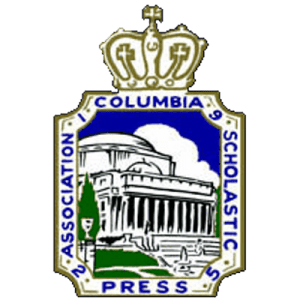
The CSPA was founded in 1925 and unites student editors and their faculty advisors to promote excellence in student journalism. The CSPA holds contests and awards publications to continually make student media better by setting the standard higher and higher. The student members of the CSPA come from all types of schools and colleges, which highlights its diversity of voices.
In light of Grub Street winning a Gold Crown, I reached out to Kourtney Douglas, who worked as one of the two Editors-in-Chief of Volume 71, with a few questions related to her time working on Grub Street.
This interview has been edited for clarity and length.
Colin Lang: What was the most fulfilling part about completing and publishing Grub Street?
Kourtney Douglas: I think the most fulfilling part of working on Grub Street Volume 71 was becoming acquainted with some of the brilliant minds behind work we had become so familiar with. It really demonstrated to me how intimate of a privilege it is to be a part of someone’s writing journey and process. I am beyond humbled by the experience. I also got to work with some really awesome people who will surely go on to do some great work, in whatever field they end up in.
CL: What was the hardest part in the process of publishing Grub Street?
KD: I think the most difficult part was simply logistics. Thankfully, besides [on] a handful of works, Kelsey and I often agreed with our genre editors, and we all seemed to work well together. Most of the trouble came when outside life starting “life-ing”–a lot of it was asynchronous, and it did become difficult as the work increased. Most of us worked while being full-time students, some of us supported partners and families. For me, I’m a full-time caretaker of a school-aged relative, who had a lot of health challenges, and I also got COVID-19 during the revision process. I credit Jeannie Vanasco, our advisor last year, and Kelsey Franklin, my Co-Editor-in-Chief, with getting us to the end successfully.
CL: What advice would you give to future Grub Street editors?
KD: I could ramble for a long time about all that I learned, so let me try to get it into something you can use. I think my biggest advice is to learn all you can about the process. Ask possibly stupid questions, challenge norms and standards, and don’t shy from the idea of nuance and impossible complexity in the media you enjoy. You can be critical and still love something. You can personally dislike something while acknowledging its value and impact. Think deeply about the fact there are other humans on the other side of Submittable, sending in their work with trust in your ability to honor how vulnerable submitting is.
CL: How does it feel to have worked on an award-winning literary magazine?

KD: I forget what a big deal Grub Street is to many. I’m humble and thankful for the experience. If we made an amazing issue that never won a single award, I’d still be just as pleased. What is important to me is the growth and acknowledgement of the team and artists and getting the work to readers who want it.
CL: What knowledge from working on Grub Street do you take with you to this day?
KD: Grub Street was the first time I had worked on this large of a team for any kind of major project in years, so those skills: learning to be curious about others’ opinions and not judgmental, being open-minded, flexible and creative when it comes to logistics–those are things I still use everyday. I also learned or relearned so much about writing, about form, and about the process, both the internal and external, of publishing and writing. Also, I got to talk to one of my favorite poets, Hanif Abdurraqib, when Jeannie invited him to class, and I found so, so many great authors through the books assigned in class.
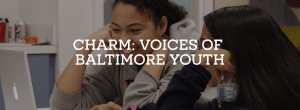
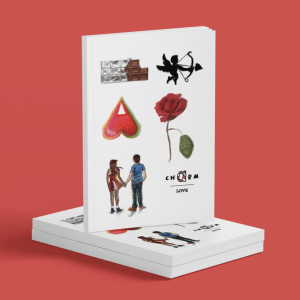
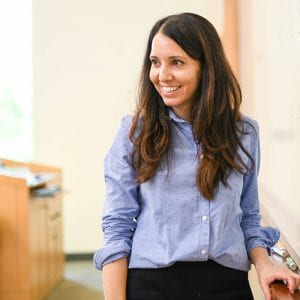
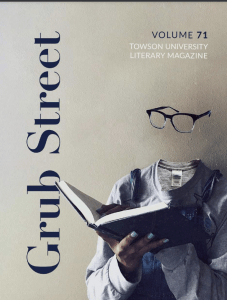
 the guests returned to their homes
the guests returned to their homes